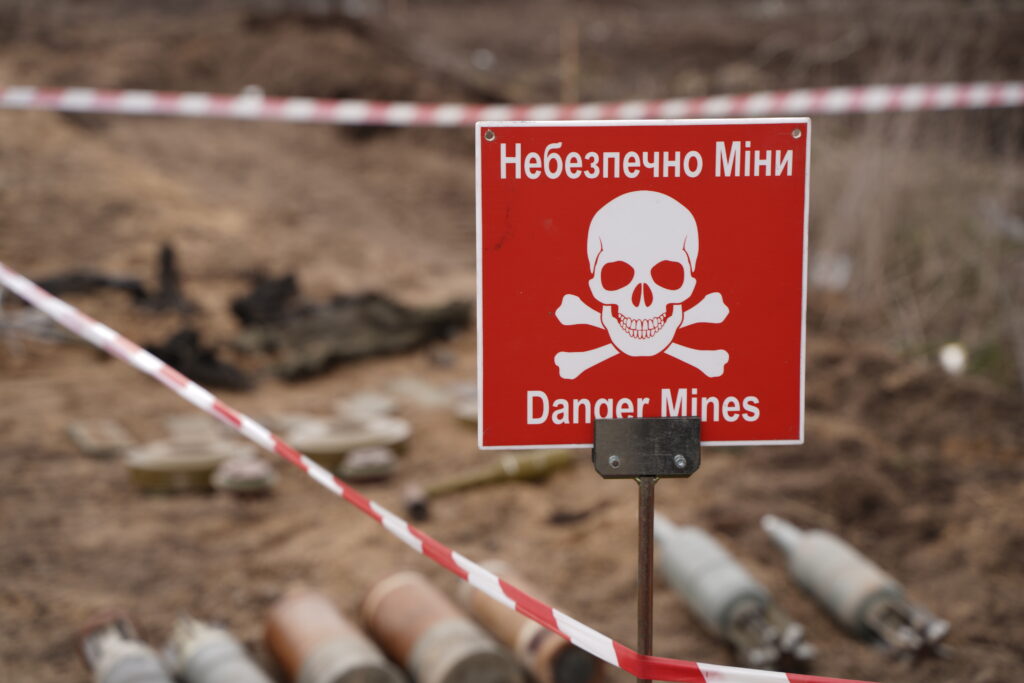
The 1997 Mine Ban Treaty and its states parties’ obligations have been a major topic of discussion at the UN General Assembly’s First Committee on Disarmament and International Security this October. Many states have criticized Ukraine’s unprecedented declaration to suspend its obligations under the treaty until its war with Russia ends. States began submitting formal objections to the UN on October 17.
In September, the Clinic and Human Rights Watch released a new background briefing, “Challenging Ukraine’s Mine Ban Treaty ‘Suspension’: A Humanitarian and Legal Imperative.” The report details how the Mine Ban Treaty, which has saved countless lives by prohibiting antipersonnel landmines and requiring clearance and stockpile destruction, is now at risk not only from Russia’s use of landmines and the withdrawal of several European states, but also from Ukraine’s unlawful suspension.
Human Rights Watch and the Clinic show that neither the Mine Ban Treaty nor the 1969 Vienna Convention on the Law of Treaties provide legal grounds for suspension and emphasize that Ukraine’s action undermines both humanitarian protections and the international legal order. As the paper explains, the Mine Ban Treaty does not allow for suspensions, particularly during armed conflict. The treaty’s prohibitions apply “under any circumstances,” including times of peace and armed conflict, and states parties may not withdraw from the instrument during the latter. In addition, the provision of the Vienna Convention that Ukraine uses to justify its suspension does not apply during armed conflict.
The Clinic-Human Rights Watch publication urges states parties to decisively reject Ukraine’s suspension, reinforce the treaty’s core protections, and safeguard hard-won humanitarian norms. It calls on them to challenge Ukraine’s position at United Nations and Mine Ban Treaty meetings and adopt a formal declaration at the latter making clear that suspensions are not permissible. To read the full list of recommendations and download the complete background briefing, click here.